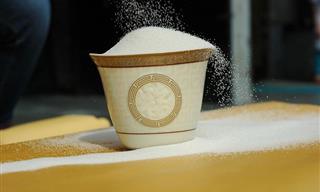Poor sleep can really feel like a curse. If you feel you’ve tried everything and would rather opt for a more natural solution, you might be excited to learn about the findings of recent research conducted in Australia’s Murdoch University (for more information on sleeping issues click here). It all started with earlier research, which tested the qualities of saffron as a natural additive to antidepressants for people suffering from mild-to-moderate depression.
Not only did it prove effective, but many participants also reported improvements in their sleep since starting to take saffron. Wishing to examine this further, the lead researcher Dr. Adrian Lopresti’s new research focused entirely on the effect saffron has on sleep.

The participants in this research were all healthy adults who are generally medication-free and do not suffer from depression but reported experiencing poor sleep for a period of over four weeks. For 28 days, the volunteers received either a 14 mg standardized saffron extract or a placebo, twice daily. Neither the test subjects nor the people managing the substances knew who was getting what.
When the participants were asked to rate their sleep at the end of the experiment, it was found that those who were given the actual extract experienced significantly greater improvements in their sleep quality than the placebo group. The improvements were reported to appear within 7 days of beginning the treatment.
What’s the Story of Saffron?
Saffron has been attributed with quite a few health benefits, including being a powerful antioxidant, reducing menstrual pains and acting as an aphrodisiac. It is also the most expensive spice in the world – 1 pound (450 grams) can cost between 500 and 5,000 US dollars. Its medicinal qualities have actually been known for centuries – ancient Greeks brewed Saffron tea which was used as medicine after excessive wine consumption. In ancient Persia, it was valued as a remedy against depression. It appears in pre-historic records to be used by Cleopatra and Alexander the Great.
While there still isn’t a clear scientific explanation of how saffron helps to fight insomnia, there definitely seems to be something special about it. Currently, a larger study is being planned, involving a more demographically varied group of volunteers to provide more insight into these recent findings.
 Go to BabaMail
Go to BabaMail

























